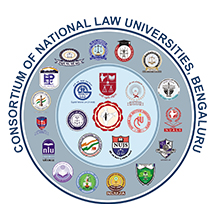
Civil Law Course Details - Fees, Subjects, Syllabus, Duration, Eligibility, Career Scope
What is Civil Law
Civil Law is one of the most popular specialisations of law, it assists in the settlement of different non-criminal conflicts. It uses standard processes, a set of rules and regulations, and judicial precedent. The conflict might range from personal to family and again to corporate. Civil Law also governs private disputes between people by providing compensation or other sufficient resources for violations of their civil or private rights.
Civil law is studied as a subject in courses like BA LLB, BBA LLB, and B.Com LLB. Civil law is studied as a specialisation under the LLM course. Civil laws will increase in power with global economic activity and the growth of international and supranational legal institutions. Civil lawyers are in huge demand and have a great scope for reaching heights in their careers with wisdom and expertise. The following article describes every detail of the civil law course along with the course fees, availability of jobs, and expected salaries. With the course fees, availability of jobs and expected salaries.
Civil Law- Important Dates and Events
- 7th December 2024- CLAT result out
- 9th December 2024-CLAT 2025 Counselling Registrations Started
Civil Law Course Details
| Particulars | Values |
|---|---|
Branch Name | Civil Law |
Civil Law Degrees | LLB and LLM |
Civil Law Course Duration | LLB (3 years) LLM (2 years) |
| Eligibility | UG- Graduate with 50 per cent of aggregate marks from a recognised board PG- Bachelor of Law Degree with 50 per cent of aggregate marks |
| Admission Process | LLB( Entrance exams like CLAT, TS LAWCET, LSAT) LLM (Entrance exams like AILET, IPU CET, BHU UET) |
Top Entrance Exams | CLAT, AILET, and MH CET |
Course Fees | LLB ( Rs 50,000 to Rs 2.5 Lakhs) LLM (Rs. 1 Lakhs to Rs. 3 Lakhs ) |
Semesters | LLB( 6 semesters) LLM( 4 semesters) |
Career options | Civil Lawyer, Lecturer, Law Officer, Legal Administrator, and Legal Advisor |
Average Salary | Rs. 2.5 LPA to Rs. 8 LPA |
Recruiting Companies | Mackenzie Modern It Solutions Private Limited, Pankaj Bhandari Associates, River Forest Connections, Peepal Associates, and Altruist Technologies Pvt Ltd |
Top Government Civil Law Colleges in India
Students can study Civil Law at various government law institutes in India. While government institutes offer good educational and placement opportunities. The fees of a government law institute may also be expensive. As of now only the School of Legal Studies, KR Mangalam University, Gurgaon offers a Civil Law course. The fee for the programme is generally Rs. 5.40 Lakhs.
Top Private Civil Law Colleges in India
Civil Law courses are offered by many colleges in India, and studying at a private college is more expensive than studying at a government institute. In the table below, we have mentioned the top private Civil Law colleges offering Civil Law courses in India.
| Colleges | Fees |
|---|---|
- | |
Rs 5.40 Lakhs |
Eligibility Criteria (UG & PG) of Civil Law
As mentioned earlier, there is no undergraduate civil law course as such; it is taught as a part of the LLB curriculum. Civil law courses are available only at the postgraduate level. To be eligible to get an LLM degree in civil law course, one must possess an LLB degree from a recognised university. There are entrance examinations held for admission into the master of law course. One must pass those exams with the stipulated cut-off marks.
Eligibility Criteria for UG Courses
One cannot study civil law after class 12 as it is not offered in India in any undergraduate course. The students have to enrol themselves into the LLB programme. For an LLB course of three years, the candidates have to score a minimum of 45 per cent marks in the class 10+2 examination from a recognised board. For admission into the BA LLB course of five years, the criteria remain the same. However, there is a relaxation in the marks percentage for reserved category students.
| Eligibility Parameters | Details |
|---|---|
Educational Qualification | 10+2 from a recognised board in India (in any stream) |
Minimum eligibility requirements | 45 per cent aggregate marks (5 per cent relaxation for candidates belonging to the reserved categories) |
Entrance examinations | CLAT UG, LSAT, AILET, MH CET Law, and AP LAWCET |
Top Entrance Exams for UG Courses
Some of the popular entrance examinations for admissions to undergraduate degrees in the field of law are listed in the table below.
| Exam Name | Conducting Body | Exam Schedule |
|---|---|---|
Consortium of NLUs | ||
National Law University, Delhi | ||
Acharya Nagarjuna University, Guntur |
Eligibility Criteria for PG Courses
Candidates interested in pursuing postgraduate courses in the field of Civil Law must complete their Bachelor’s degree in the field of law or related discipline with a valid aggregate score. Mentioned below are the PG eligibility criteria for the Civil Law course.
| Eligibility Parameters | Details |
|---|---|
Educational Qualification | LLB from a recognised institute in India |
Minimum eligibility requirements | 50 per cent aggregate score (5-10 per cent relaxation for candidates belonging to the reserved categories) |
Entrance examinations | CLAT PG is a popular entrance examination for PG-level degrees |
Top Entrance Exams for PG Courses
Admission to the postgraduate level courses in Civil Law is majorly based on entrance examinations. Students should check the website of the provider to know the course details. In the table below, we have discussed the popular entrance examinations for PG-level degrees in Civil Law.
| Exam Name | Conducting Body | Exam Schedule |
|---|---|---|
Consortium of NLUs |
College Predictors VIEW ALL
Scope of Civil Law in India and Abroad
India is a country with constitutional law. Civil law contributes largely to the judicial and legal systems of India. Thus the demand for civil lawyers is wide in this country. In India, civil law can be pursued from the aspect of family law, tort law, media law, contract law, and administrative law. These areas being largely dependent on precedents require more and more involvement of civil lawyers. The jurisdiction of Indian civil courts is specified by civil law and the Code of civil procedures (CPC).
Other nations like the United States, Singapore, Australia, France, and New Zealand, have constitutional law implemented. So, the demand for civil lawyers is high in these countries too. Situations of civil importance are taken care of by civil lawyers in these countries. They are vested with inherent discretionary powers. Civil law solves disputes between individuals and/or institutions completely and impartially.
Course Fees Civil Law
| Minimum Fees | Maximum Fees | |||
|---|---|---|---|---|
| Private | Government | Private | Government | |
| PG | ||||
| DOCTORAL | ||||
Course Subjects
The syllabus for postgraduate courses as well as undergraduate courses slightly varies depending on the institute. In the table below we have mentioned the UG courses related to Taxation Law. The civil law subjects can be divided into UG and PG levels. The subjects and syllabus can differ from a selection of specialisations as they learn different subjects from different specialisations. Civil law is studied as a subject under the LLB course in one semester. The below UG syllabus is taken from Shivaji University, Kolhapur.
Civil Law Syllabus for UG Courses
| Unites | Topics |
|---|---|
Unit I | The Basic Concepts of the Civil Procedure Code |
The distinction between decree and judgment and between decree and order Jurisdiction | |
Suit of civil nature-scope and limits | |
Res-subjudice and Res Judicata | |
Unit II | Parties to the suit: Joinder, misjoinder non-Joinder Of Parties |
The Rules Under Civil Manual(divorce and judicial separation cases) | |
Process Of Suit, Rules under the Suit Valuation Act 1887 | |
Frame Of Suit: Importance Of Cause Of Action | |
Unit III | Rules of Pleading, Signing, and Verification |
Plaint: rules and particulars | |
Interrogatories | |
Unit IV | Appearance |
Ex-parte procedure | |
Adjournments | |
Interest And Costs | |
Unit V | General principles |
Power for execution of decrees | |
Enforcement, arrest detection | |
Delivery Property | |
Unit VI | Public Nuisance |
Interpleader Suits | |
Appeals, Review, and Reference | |
Miscellaneous, Transfer of cases, Caveat, Inherent powers of Courts | |
Unit VII | Expiry Of Prescribed Period When Court Is Closed |
Condonation Of Delay | |
Computation Of Period Of Limitation | |
Extinguishment Of Right To Property | |
Unit VIII | Computation Of Court Fees |
Refund of fees | |
The Mode Of Levying Fees | |
Process Fees |
Careers in Civil Law
After completing Civil Law courses at the undergraduate or postgraduate level, graduates can choose from various career options. They have to present cases to juries and judges at the state civil courts. They can also work for the investigation of official data in public or private sector enterprises.
They can assist in translating laws and rulings for persons, businesses and organisations. They may act as negotiators in the settlements of legal disputes. Many law students after passing from a civil law institute also join banks and get placed in credit departments where their expertise is greatly valued for appraisal of cases.
| Job Profiles | Job Descriptions |
|---|---|
A Civil Lawyer is also known as a litigator. He or she handles civil conflicts such as property settlement, dowry, divorce, and commercial matters, among other things. To deal with the situation by law and order. | |
Professor | Professors impart knowledge to the next generation of students who are interested in making civil law their career. Those who join various colleges and institutes offering the course and share their experience and expertise with the students. |
Legal advisor provides advice to clients regarding legal decisions, various legal issues, and documentation policies. Various organisations recruit legal advisors who would take care of the legal disputes, and resolve and prevent them as they occur between the company and the clients, the company, and the government. | |
Journalists are professionals who collect news and stories of civil importance and present them to the readers. They represent arguments, collect information from all possible sources and make the audience aware of the events happening across the globe. | |
Social Workers aim to improve human well-being and assist in meeting the basic and complicated needs of all people, with a special emphasis on those who are vulnerable, oppressed, or living in poverty. | |
Political strategist | Political strategists are the political consultants of a particular political party or a candidate who is standing in the election. Planning campaign strategies, arranging public events for promoting the candidate, and coordinating the staff associated with the campaign are a few of the basic activities of political strategists. |
Upcoming trends
Legal Process Outsourcing is a new trend in this field. In India, LPOs are already operating and a good number of new and young civil candidates are recruited by them. It mainly involves the legal dealings in the US and UK laws.
Also, a declining economy, escalating medical costs, and record foreclosures have created a surge in filings under the guidelines of civil law. E-discovery attorneys and litigation support professionals under the branches of civil law help identify, preserve, collect, process, review and produce ESI in litigation.
Job Profiles and Top Recruiters
Civil Law graduates can work in a variety of industries, such as law firms, companies, banks, NGOs, and educational institutions. Some of the top careers in the field of Civil Law are mentioned below.
- Nishith Desai Associates
- S&R Associates
- AZB & Partners
- Talwar Thakore & Associates
- Anand and Anand
- Desai & Diwanji
- Trilegal
Average Salary
Candidates' salary depends upon many factors such as job location, job role, skills, and abilities. But the remuneration is largely dependent on the years of experience they have earned and the level of qualification. In the table below we have listed the salary for some of the top career options after the course.
| Job Profile | Average Salary |
|---|---|
Civil lawyer | Rs. 5.9 LPA |
Legal advisor | Rs. 5.9 LPA |
Assistant Professor of Law | Rs. 4.5 LPA |
Journalist | Rs. 3.9 LPA |
Political Consultant | Rs. 8.6 LPA |
Source: AmbitionBox
Required Skillset for Civil Law
Candidates interested in pursuing Civil Law courses at the undergraduate and postgraduate levels must possess some skills to do well academically and professionally in the career of Civil Law. In the table below, we have mentioned the top skills required for the same.
- Analytical Skills
- Good Communication Skills
- Interpersonal Skills
- Interest and aptitude for law
- Problem-solving
Course Curriculum for Civil Law
Civil Law is a field of Law and includes various topics such as Family Law, Intellectual Property Law, Labour Law and International Law. The civil law course curriculum includes four sections. These are:
- Family law: This area deals with the issues related to family relationships such as marriage, divorces, adoption, child custody, and others.
- Intellectual property law: It includes the rules for securing and enforcing legal rights to inventions, designs, and artistic works.
- Labour law: It deals with legal rights and restrictions pertaining to people working for organisations.
- International Law: It involves a set of rules accepted as binding relations between states and nations.
Popular Civil Law Entrance Exams in India
Popular Civil Law Colleges in India VIEW ALL
Frequently Asked Questions (FAQs)
Question: What are some of the top recruiters hiring Civil Law graduates?
Answer :
The top recruiters hiring the graduates are Nishith Desai Associates, S &R Associates, Khaitan & Co, Anand and Anand, J Sagar Associates, Wadia Ghandy & Co.
Question: What is the eligibility criteria for Civil Law course at undergraduate and postgraduate level.
Answer :
Candidates are advised to check the eligibility criteria of the desired institute before applying for admissions. They can find the eligibility criteria of the course by visiting the official website of the institute or on the programme brochure. For UG course, the candidates are required to complete their 10+2 examination with a valid aggregate score from a recognised board. For PG courses, they need to have a Bachelor's degree preferably in Law with a valid aggregate score as specified by the desired institute.
Question: What are the skills required for Civil Law course?
Answer :
Civil Law like any other require some skills to do well both academically and professionally. These skills are Analytical Skills, Research Skills, Good Communication Skills, Logical Thinking and Ability, and Problem- Solving Skills.
Question: What are some of the degree programmes offered in the field of Civil Law?
Answer :
Some of the degree programmes offered in the field of Civil Law are LLM, Ph.D, and BA courses.
Question: Can I do LLB in civil law after class 12?
Answer :
No institute in India offers a graduate course in civil law. One can certainly opt for LLB but there is no scope of doing an LLB in civil law. This 3-year course can be done after completing graduation. However, one can opt for a 5-year integrated course after class 12 if he/she is interested in law as a career. For pursuing civil law, one has to wait till LLB is completed and then can go for LLM in civil law.
Question: How much salary can a graduate in Civil Law earn?
Answer :
The salary of a Civil Law graduate depends on many factors such as the experience of the candidate, location of the company, job profile and resume of the candidate. The average salary of a Civil Lawyer in India is Rs 3 LPA.
Question: What are the fees of the law colleges offering LLM Civil Law?
Answer :
The fees of the Civil Law courses depends on the type of institute, course applied and the location of the institute. The average fees ranges from Rs 3,000- Rs 7.2 Lakhs.
Question: Which colleges offer civil law courses in India?
Answer :
There are many colleges offering Civil Law courses such as Nalsar University of Law, Hyderabad, Symbiosis Law School, Pune, National Law School of India University (NLSIU), Bangalore, National Law Institute University (NLIU), Bhopal, University College of Law, Osmania University, Hyderabad, Government Law College, Mumbai.

















